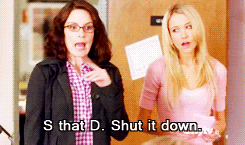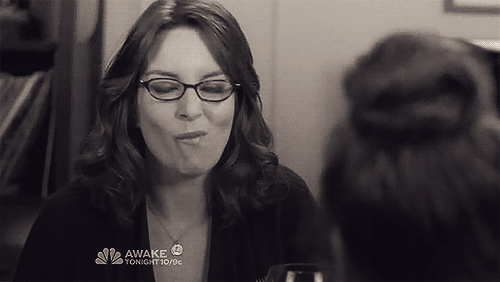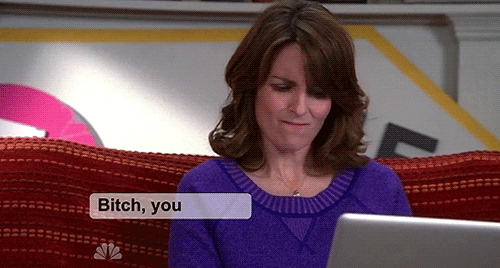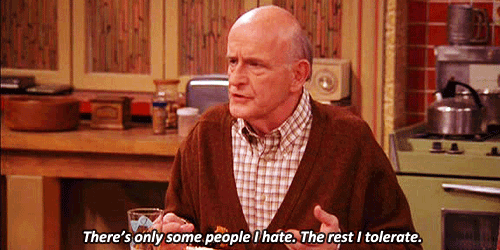Annotated
Bibliography
Kilburn, Ashley J., and Brandon R. Kilburn. "Linking
the Classroom to the Living Room: Learning through Laughter with the Office." Academy of
Educational Leadership Journal 16.2 (2012): 21-31. ABI/INFORM Global; ProQuest Research Library. Web. 11
Feb. 2013.
Instead of taking the normal model for a classroom many
business schools are pointing their students towards “The Office”, the capital
letters are correct, they are instructing through a television show. This is
stupid since “The Office” is past the show’s prime; no one wants to fall asleep
watching “The Office” during a business lecture though, which is why it has
increased attendance for a class functioning as a watching television class to learn.(Kilburn
paragraph 1) Are they too wrapped up in the plot to derive some knowledge from
the business side of things though, are there any tests to show that? It may
help kids attend class, so is it the professors doing or is the show “The
Office” teaching students better than their professors? After all it is just a scripted television
show, so learning about diversity, stress, aggression, recalls, advertising,
and ethics is all simulated.(Kilburn paragraph 11) The university uses the show as a what-not-to-do
guide. Ohio now even offers a History of Jewish humor class, offering to
celebrate Jewish comedians. (Kilburn paragraph 4)“Seinfeld” was a comment on
society when it was on the air. Kramer, George, Elaine, and Jerry are eccentric
and crazy but according to Kilburn, even “Seinfeld” is a useful television show
to teach about interaction and relationships, which begs the question, “don’t
all sit-coms involve relationships and interactions hence the name situation
comedy?”(Kilburn paragraph 6) Of course that question is true because no one
wants to end up in jail like the characters in “Seinfeld” for not being able to
socially integrate into their society. However “Seinfeld” is not relevant to
audiences now because with all the diversity in the world, everyone should have
learned to be used to diversity by now, but in case the memo was missed,
Kilburn suggests that “The Office” is the imperfect, perfect medicine.
"Loyal Viewers Mean Slow Changes in TV News
Ratings." Buffalo News (Buffalo, NY) 2013. Print.
This article talks about television local television shows
are hard to gain new popularity because audiences are loyal to their local
stations, which is understandable because people are quite connected to their
community, there is nothing unusual about that. Then this article begins to
explain what Nielsen ratings are, and how networks use them in order to figure
out how to improve their stations. Nielsen uses boxes that measure these things
as well as diaries(paragraph 2,3). However having access to Nielsen ratings is
expensive and is usually only affordable by large networks. Households are
given boxes that indicate what television shows are being watched, and these
are cycled through families. A direct quote from the article is “It’s not just the size of the audience, it’s
the quality as perceived by the advertisers.” (paragraph 20) This means that
the size of the audience does not necessarily matter, what matters is how
highly educated the show seems to an advertisers. So in other words, more
viewers does not mean bigger profits in certain situations, so ratings do not
always throw a show off the air. “30
rock”, and “Parks and Recreation” are shows that seem to have higher education
jokes, suggesting these people also make higher money, this making them targets
of the show and advertising.(paragraph 21) After all the Kardashians go through
real problems and “30 Rock” is dramaticized, the Kardashians are completely
real, when it comes to the popularity and fame.
Martin, Jake. "Why Sitcoms Matter." America
Magazine. America Magazine, 14 Nov. 2011. Web. 14 Feb. 2013. .
Sit-coms are a thing of the past with Charlie Sheen’s
despicable behavior ruining the genre forever since the whole world
metaphorically revolves around Charlie. The Office has exhausted the situations
and pays the actors big money to exhaust the whole show. Martin claims that the
high art of Leonardo de Vinci is not as personal to audiences as a television
show, after all most people would not claim the Mona Lisa as their own but
according to Martin people may say “my show” because it shows the audience more
about themselves.(paragraph 1) Sit-coms brainwash audiences to join their
sadistic cult by helping people to connect with relatable characters that are
not real but because it is not entirely realistic that is the part that draws
people in, to the point where people watch the fake emotion every week. These
sit-coms put a person in an actor/actresses perspective, while reality stars
would never do that, after all, they are real. The author also comments that
often a hero is relatable when the hero is fallen such as the case with Michael
Scott, who is omniscient and stable (paragraph 10). With this description, he
sounds like a god, and in a way, he is, because he is the main character.
Russell, Cristel Antonia, Barbara B. Stern, and Barbara B.
Stern. "CONSUMERS, CHARACTERS, AND PRODUCTS:
A Balance Model of Sitcom Product Placement Effects." Journal of Advertising
35.1 (2006): 7-21. Print.
In this article, the authors have put together a
presentation on how characters associate a character with certain products, but
it also matters how the audience views the character to see if product
placement works. Product placement is used to pay for the television programs.
Characters help to create a positive connotation for a product (pg 8). It has
been show though that products can also affect how consumers view the
characters, it has to seem natural, and sets a tone with the audiences’
knowledge of a company’s reputation. So according to the research done in this
article, all of these affect one another like a great big triangle (pg 8). The
nature of the show seems to exemplify what the characters will buy, such as in
Everybody loves Raymond, Raymond is associated with cake and chips, while his
wife, Debra, is associated with the vacuum cleaner (pg 14). However reality
shows can do this outright, obviously this is the right way to approach
advertising is bluntly. This article argues that it depends on what the tone of
the television show indicates whether blunt advertising or subtle product
placement should take place. The way products are perceived is whether
characters and products give a good message or not, then the consumer will buy
into a product or not (pg 15). People buy into marketing from an imaginary
character, when reality television stars are real people who never put on a
show, when advertising a product in exchange for money.
Myers, Joe, Lexi Brackett, Dannie Chalk, and Andrew
Terhune. Academic Universe: Research and Writing at Oklahoma State University. 2nd ed.
Plymouth, MI: Hayden-McNeil, 2009. Print.
“The Office” is originally a British television show created
by Ricky Gervais. Many British fans stated that this show could not be adapted
to an American audience because “The Office” was a commentary on British
culture. At the BBC2, the show first aired with low ratings that seemed to
indicate that Americans could not duplicate the show with much success either
(pg 197). However the layout indicates that the show is set-up like a reality
television show, or a mock-documentary. In fact the show may as well be an all
out reality show with love blossoming and everyone watching the mundane
practice of paperwork for a paper company.
While “The Office” thrives in America, it had a whopping fourteen episodes
for the British version of “The Office”, ending right after the Christmas
special. (pg 199) The show hints more for American audiences that Jim and Pam
have feelings for each other and to capitalize on this romance for as long as
possible. The plot is carefully adapted with a lot of thought of how to keep
the characters basically the same, just with different names, and their
mock-documentary admissions in American fashion (pg 209). The office has to go
through a lot of uncomfortable situations that are constantly changing in a
modern world, where Michael Scott (played by Steve Carrel) sticks out like a
thumb because of his socially wrong takes on things such as Diversity Day.(pg
211-212) The British version seems to subdue their reactions more while the
American approach does seem to reflect a mocking style of drama that is created
in society.




